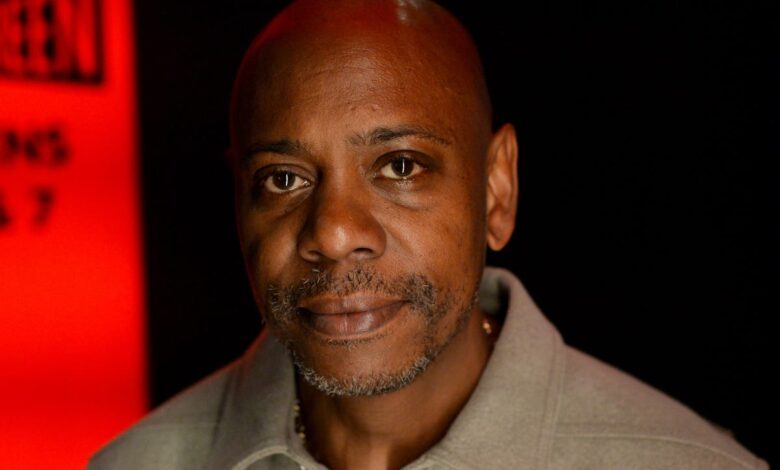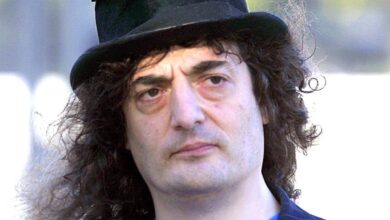Dave Chappelle’s attack worsens safety fears around standup – but don’t blame Will Smith

When a man ran on stage and attacked Dave Chappelle during a live stand-up routine, everyone was always going to mention the name Will Smith. The comedian was delivering a routine on Tuesday (3 May) at the Hollywood Bowl in Los Angeles as part of the Netflix is a Joke festival. The man who attacked him was later said by police to be carrying a knife blade and replica gun. It’s less than six weeks after the Oscars, when Smith walked up to another comedian, Chris Rock, onstage and struck him, Rock made a joke about Smith’s wife, Jada Pinkett Smith.
Rock was, in a strange coincidence, in attendance at Chappelle’s gig in LA, and appeared on stage after the attack to crack the obvious joke: “Was that Will Smith?” He was, as all comedians strive to, simply saying what we’re all thinking. The incident appeared to confirm the worst fears that had been voiced after the Oscars – that Smith’s brazen slap could encourage copycat violence. And that comedians would be less safe on stage: say what you want but suffer the physical consequences.
Kathy Griffin was one of the comics to share this concern, writing recently: “Now we all have to worry about who wants to be the next Will Smith in comedy clubs and theatres.” TV host Jimmy Kimmel, meanwhile, suggested the Smith incident has left comics angrily wondering who’ll be coming for them during their next performance. “Comedians are really mad,” he said. “I feel they all feel like they’re next.” An invisible barrier, it seems, had been breached that night at the Academy Awards. And yesterday, one man walked right on through the gap.
Of course, Rock is a comedian, and things comedians say on stage should seldom be taken entirely literally. He was not equivalising Smith’s attack to an assault by an armed stranger, but rather making a comic comparison for the sake of a laugh. Any serious comparison between the two incidents would risk trivialising the assault on Chappelle and misrepresenting the actions of Smith. But while it would be unfair to hold Smith accountable for someone else’s crime, that’s not to say the two incidents aren’t linked. They are both symptoms of the same disease: a culture that is angry, unstable, and at odds with itself. Too often now, violence seems to be the only answer and the only form of communication. And the lines between violence and performance are all too often blurred.
The attack on Chappelle is a complicated one to parse for a few reasons. Phones were forbidden during performances at the Netflix-run festival, so word of the attack spread through a jumble of post hoc social media reactions. The exact details of the incident have not yet been clarified, nor have the motives of the alleged attacker. And then there’s the comedian himself, forever fanning the flames. Chappelle has attracted no small amount of controversy in recent years, largely stemming from his jokes about transgender people, and Tuesday night was no different: in response to his attack, his punchline was, “it was a trans man.” It’s telling that he chose to make such a supposed joke in the chaotic aftermath of the incident – that he chose to implicitly position the act of violence, however jokingly, as a retaliatory response to his own rhetoric. (The man arrested for the alleged crime, 23-year-old Isaiah Lee, is cisgender.)
On every side, culture is becoming more reactionary. The phrase often applied to the controversies Chappelle becomes embroiled in is “culture war” – “war” being the operative word. But transphobia is itself a form of violence; look at the statistics for the number of trans people who are victim to hate crimes, who suffer sexual or other forms of abuse, who experience homelessness, or who die by suicide, and you’ll see the violence is every bit as real and tangible as any other form. Jokes like the ones Chappelle has become known for – aimed at trans people, described by many as transphobic – inform wider discussions and attitudes around trans people, how their rights and bodies are regarded by others. For many, these arguments are a war, and it’s clear who has all the munitions.
There’s also something eerily performative about the way the attack on Chappelle went down, and how Chappelle and Rock were able to joke about the incident mere minutes after the fact. This was terror as celebrity spectacle. Maybe that is what it takes to truly cut through in this day and age.
But whatever way you slice it, the incident bodes poorly for the safety of live performers. We can say this now without the risk of hyperbole. Security precautions likely need to be re-examined. (Perhaps comedy is more in need of reform than music, which has more extensive experience with crowd violence and security breaches.) But it goes deeper than that. This was a jarring reminder of just how ingrained violence is in our society. The fateful Oscars slap may not have been the start of this – but it was never going to be the end.





